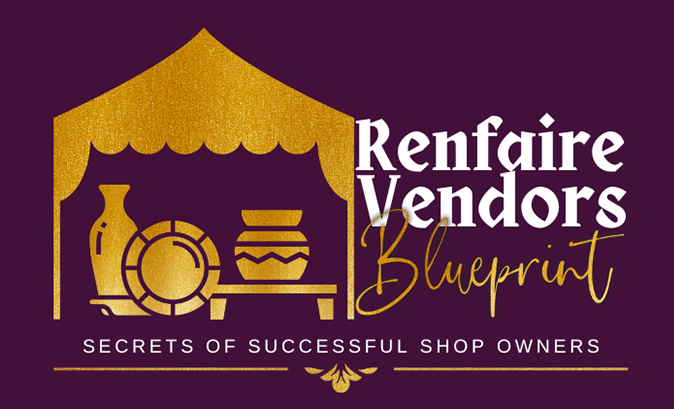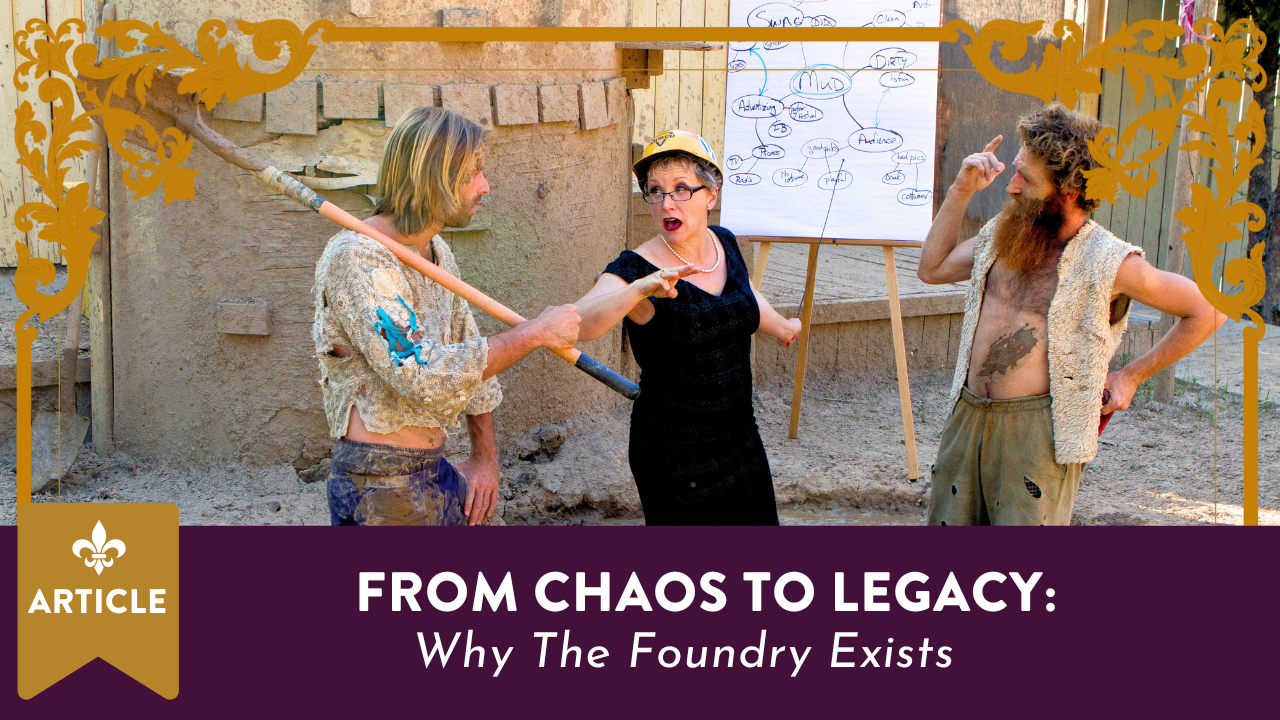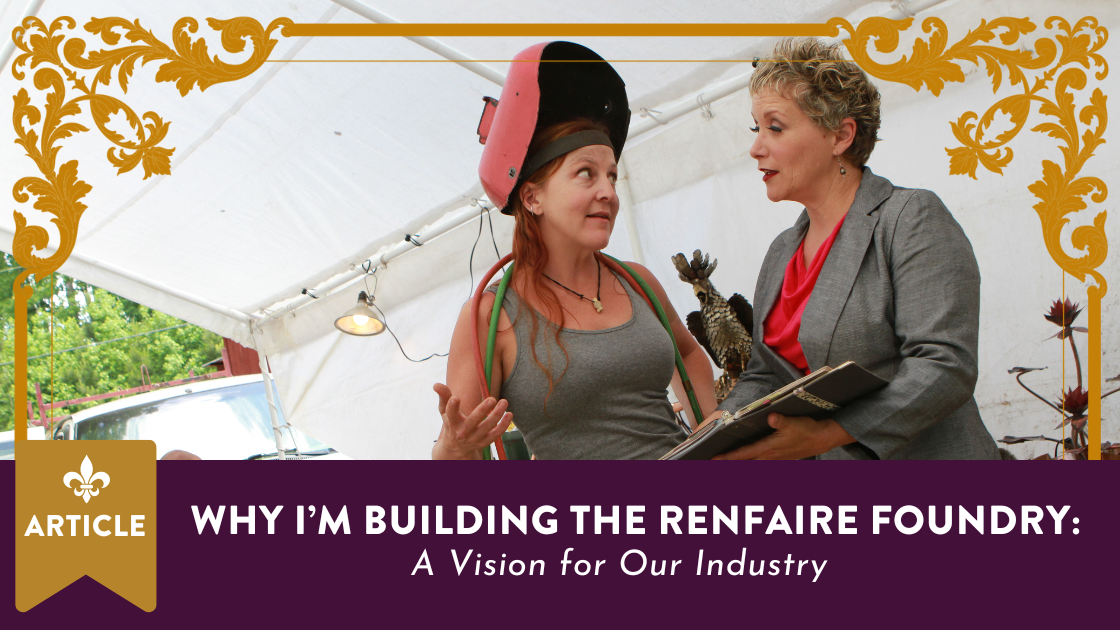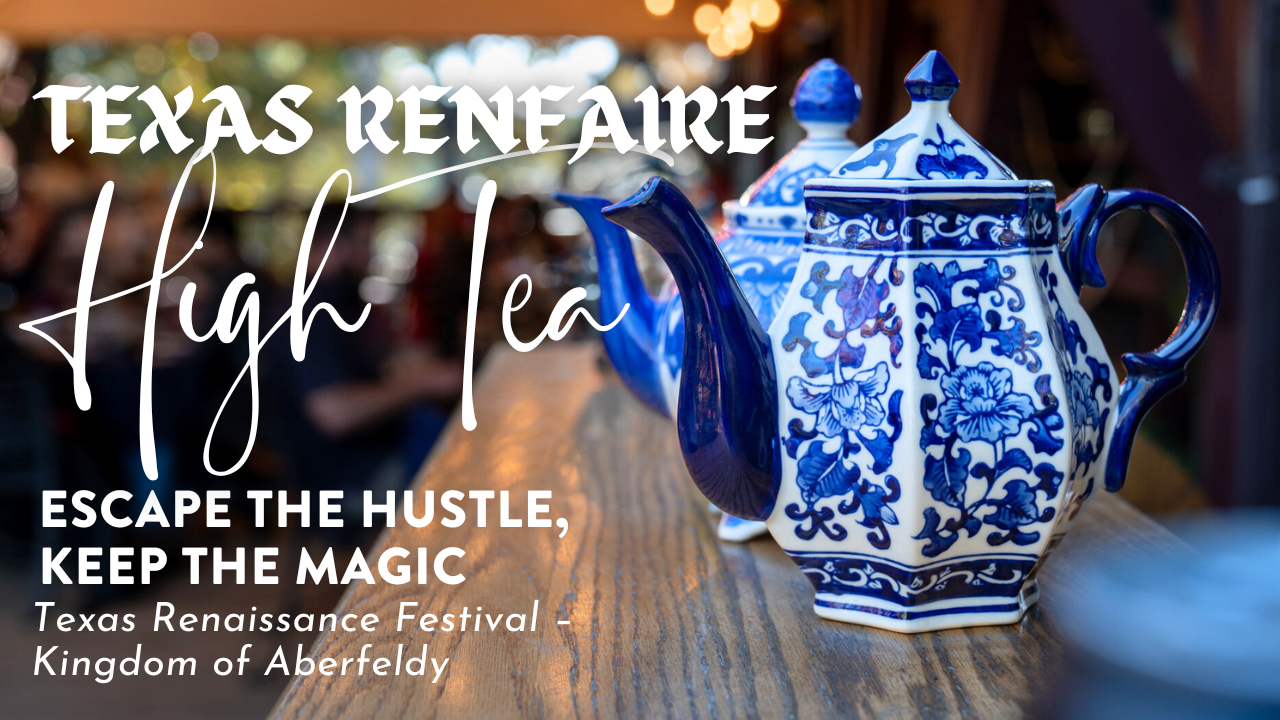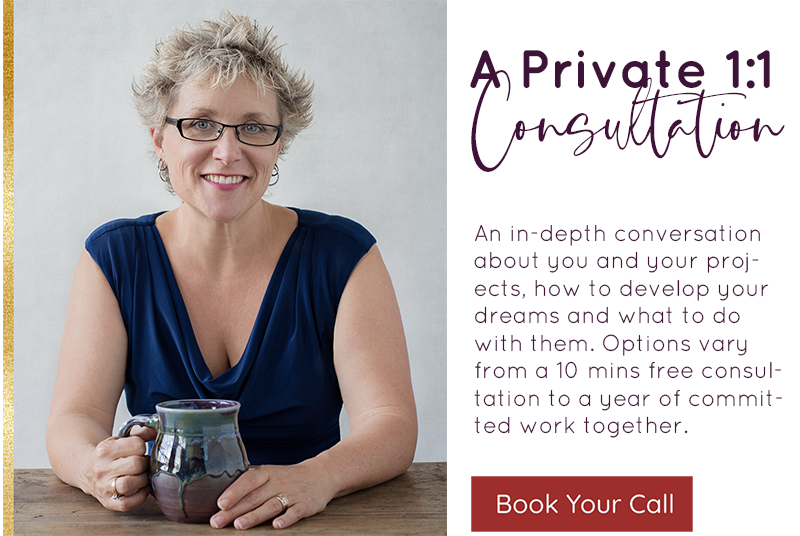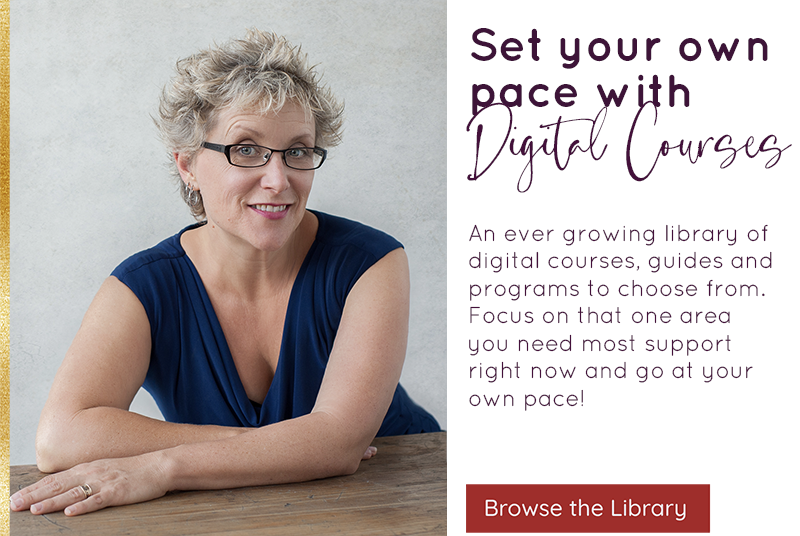My darlings, I need to let you in on something that might surprise you:
Renaissance festivals have been doing “experiential retail” for over 50 years, long before it became the latest buzzword in marketing circles.
🛍️I just read an article about how malls are now embracing experiential retail to try to lure people back. And I had to laugh—because Disney’s been doing it, and Renaissance fairs have been perfecting it for decades.
👉🏼We’ve always known something that the retail world is just now figuring out: people crave human connection, especially now that our work lives have become so digitized.
⚜️ What Makes Renaissance Festivals Different
At a Renaissance fair, you don’t just shop—you get to interact with people while playing as your most imagined self.
What is your favorite version of yourself? Well, you can be that person at a Renaissance festival.
Think about it: where else do guests get to dress up completely? Disney even has rules against it (that’s why “Disney Bounding” became a thing). But at Renaissance festivals, we encourage full costume participation. We want people to feel that they’re part of the world we’re creating together.
🗝️And here’s the crucial part: that creation, that crafting of the experience, is the responsibility of everybody who works there.
You can be selling soda, and you’re responsible for helping push the experience forward with dialect and costume.
You can be selling jewelry, and you’re going to be doing that in character and in period speech.
That’s what you sign on for when you decide to sell at a Renaissance festival.
If you don’t want to do that, then you should be doing standard art fairs or selling your products at a flea market somewhere. Because this is what we do:
🧚🏼♀️We create an imaginary world, and then we invite people into it.
🧙The Magic of Disconnection
In that experience of disconnection from their normal world, guests have a heightened sense of fun.
They may have a looser relationship with their wallets—they may be more willing to spend in a themed environment than they are when they’re just going shopping.
There are several reasons why this works so well:
🎫The Entry Fee Effect: By charging admission, Renaissance festivals establish a cost of entry that tends to attract people with more disposable income than you’d find at free events.
👩🏼🎤The Escape Factor: People are paying not just for products, but for the experience of being transported to another world for the day.
👯♀️The Community Feeling: When everyone around you is playing along with the fantasy, it creates a unique sense of belonging and shared experience.
🏰 A Personal Industry
Even after 35 years in this business, I’m still amazed by how personal and connected this industry remains.
I started selling custom moccasins—my first job was working in their workshop, and they sent me off to work at a Renaissance Fair. My second show, I was a carpenter’s helper because I met this carpenter while I was selling moccasins. Eight months later, I ran away with him. Thirty-five years later, he’s my husband, and we’re still together and still having a blast.
The number of people I know who met their spouses at Renaissance festivals is another story entirely, but it speaks to the deep connections this industry fosters.
💼Despite being a 50-year-old proven industry, even the largest, most corporate-style Renaissance festivals are still owned by individuals or families. The biggest companies might own three festivals at most.
🤝 As a whole, it remains a mom-and-pop industry where all these festivals are run by individuals, family groups, or small partnerships. They all have their own priorities and their own way of seeing things, while still falling into industry norms.
And “industry norms” is funny for an industry that’s so far outside the norm!
✨ What Every Vendor Should Know
After spending decades chatting with both festival management teams and vendor communities, I’ve learned there are things we all know would make life easier for everyone involved.
📋 Every vendor coordinator has a mental list of things they pray vendors understand before they pick up the phone to apply.
Through my conversations with industry pros—both on the management side and successful vendors—I’ve been able to identify the common mistakes that keep getting repeated, generation after generation of new vendors. There’s a wealth of knowledge that most of us figured out the hard way, through trial and error.
But here’s the thing: we now have 50 years of industry wisdom.
We know what the biggest mistakes are.
We know what makes applications irresistible and what makes vendor coordinators hit “delete.”
We know the best practices for handling rejection and turning it into future success.
📈 The Bottom Line for Vendors
If you’re considering Renaissance festival vending, understand that you’re entering an industry built on experiential retail before that term even existed. You’re not just selling products— 🧚🏼♀️you’re contributing to a shared fantasy that transforms ordinary weekends into magical escapes.
🏆 The most successful vendors understand this from day one.
They embrace the costuming, learn the dialect, and see themselves not just as merchants but as characters in an ongoing story that unfolds every festival weekend.
The vendors who struggle are often those who think they can treat Renaissance festivals like any other retail venue. They can’t understand why their perfectly good products don’t sell when they’re standing behind their booth in street clothes, speaking in a normal voice, treating customers like they’re shopping at a regular store.
⭐️Renaissance festivals work because everyone—vendors, entertainers, and management—commits to creating something bigger than the sum of its parts.
When it works, it’s retail magic.
When it doesn’t, it’s just people in funny costumes standing around.
⏳The Future of Experiential Retail
As the retail world scrambles to figure out how to create experiences that draw people away from online shopping, Renaissance festivals continue to thrive using principles we’ve refined over five decades.
👉🏼We’ve always known that people will pay for connection, for fantasy, for the chance to be their best imagined selves.
That’s not likely to change anytime soon. If anything, as our world becomes more digital and isolated, the human connections and shared fantasies that Renaissance festivals provide become even more valuable.
So while malls are just now discovering experiential retail, we’ll keep doing what we’ve always done: creating magical worlds where people can shop, play, and connect in ways that transform an ordinary day into something extraordinary.
💎 P.S. -- If you’re inspired to take a deeper dive into what it really takes to thrive in our industry, I’ve compiled 35 years of insider knowledge into the Ren Faire Vendors Blueprint: Secrets of Successful Shop Owners.
🎪This comprehensive guide includes everything I wish I’d known when I started:
• How to craft applications that vendor coordinators cannot ignore
• Best practices for what to do when a show turns you down (and how to turn rejection into future success)
• Insider tips from industry pros who’ve built thriving Renaissance festival businesses
• The biggest mistakes vendors make—and how to avoid them
👉🏼 Instead of forcing you to learn these lessons the hard way like most of us did, the Blueprint gives you 50 years of industry wisdom in one place.
GET THE REN FAIRE VENDORS BLUEPRINT HERE
Don’t spend years making the same mistakes we’ve all seen a hundred times. Join the vendors who understand that success in Renaissance festivals isn’t just about great products—it’s about mastering the art of experiential retail in our magical, medieval world.

